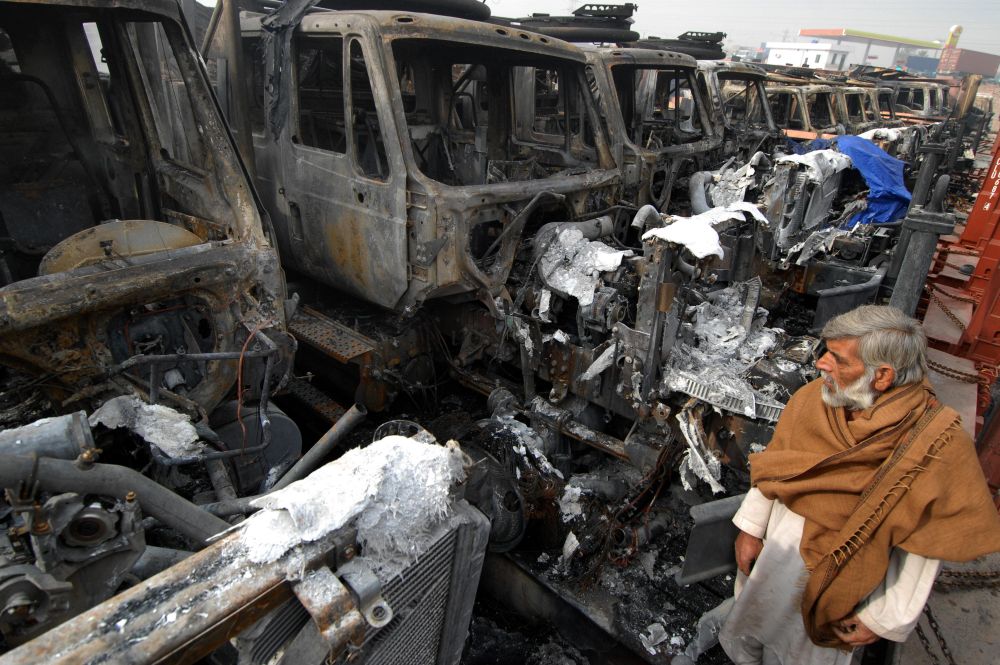Pakistan to swoop on militant leaders
India and US demand action against group thought to be behind Mumbai attacks

Your support helps us to tell the story
From reproductive rights to climate change to Big Tech, The Independent is on the ground when the story is developing. Whether it's investigating the financials of Elon Musk's pro-Trump PAC or producing our latest documentary, 'The A Word', which shines a light on the American women fighting for reproductive rights, we know how important it is to parse out the facts from the messaging.
At such a critical moment in US history, we need reporters on the ground. Your donation allows us to keep sending journalists to speak to both sides of the story.
The Independent is trusted by Americans across the entire political spectrum. And unlike many other quality news outlets, we choose not to lock Americans out of our reporting and analysis with paywalls. We believe quality journalism should be available to everyone, paid for by those who can afford it.
Your support makes all the difference.Pakistan's security forces were poised last night to arrest the leaders, dismantle the infrastructure and close the training camps of Lashkar-e-Toiba, the Islamic militant group held responsible by India for the killings of 171 people in Mumbai, government sources said.
India and the US have demanded action by Pakistan against the group, which operates more or less openly in Lahore and all over Punjab using a charitable and educational movement, Jamaat-ud-Dawa, as a front organisation. The Pakistani government has said it has yet to see proof that the Mumbai attack was carried out by Pakistanis, but independent evidence is emerging which confirms that the lone surviving gunman, Ajmal Amir Kasab, came from the village of Faridkot, south-west of Lahore.
Lashkar-e-Toiba's leader, Mohammed Hafeez Saeed, lives in Lahore and local observers predict his detention could provoke violence in the city. The Indian police say that, during his interrogation, Mr Kasab claimed he had once met Mr Saeed during his 18 months of training in four camps in Pakistan.
But Pakistani government resolve to take action against Lashkar-e-Toiba could be undermined by angry exchanges with India yesterday over a hoax telephone conversation between the Pakistani President Asif Ali Zardari and a caller pretending to be the Indian Foreign Minister Pranab Mukherjee on 28 November. Mr Mukherjee denies the Pakistani claim that a conversation took place in which he threatened Pakistan with war. Pakistan insists the call came from the Indian External Affairs Ministry.
The dispute illustrates the depth of the suspicions between the two countries. The senior Pakistani diplomat in the UK, High Commissioner Wajid Hassan, said at the weekend that he believed India had been preparing to attack his country and that he warned both his own government and British officials of his concerns.
Another likely target of the government clampdown is the complex of clinics and schools of Jamaat-ud-Dawa at Muridke, 15 miles north of Lahore. Former students say that while it was not obligatory to become a jihadi, pledged to fight the oppressors of Muslims, they were encouraged to move in that direction. Children had a small image of a machine gun printed on their tunics. Teachers related how they had fought as Lashkar-e-Toiba fighters infiltrated into Indian-controlled Kashmir. Students received training in hand-to-hand combat.
The most significant move by the Pakistani government would be to close down the military training camps in Pakistani-controlled Kashmir. Pakistani officials say they believe India considered launching air attacks on these in the aftermath of the Mumbai attacks. Former students from Muridke have gone there for military training.
While Pakistani moves against Lashkar-e-Toiba might be more than cosmetic, they would not necessarily be effective. Although the group was formed in 1989 in collaboration with Pakistan's Inter-Services Intelligence (ISI) agency, it does not follow that the ISI still has a measure of control over it. Since Pakistan stopped much of the border infiltration by Islamic fighters into Kashmir in 2004, many militants of groups like Lashkar-e-Toiba have developed close links with the Pakistan Taliban and al-Qa'ida. The motive behind the attack on Mumbai might have been to relieve the military pressure on these groups by provoking a crisis with India which would force the Pakistani army to withdraw from the Afghan border areas to face India.
The Pakistani government has hitherto said that it had been shown no convincing evidence that the Mumbai attack was launched from Pakistan or that Pakistanis had taken part. But this stance is undermined by the discovery that Mr Kasab did indeed come from Faridkot as he had claimed during interrogations. One villager confirmed that Mr Kasab's mother, Noor Elahi, had burst into tears when she saw him on television after his capture. Although she and her husband, Mohammed Amir, had left their house earlier in the week, their presence in the village was confirmed by the electoral roll. Villagers said that Lashkar-e-Toiba had significant support in the area.
The Pakistani government and military establishment are under intense pressure but do not want to be seen as caving in to India and the US. Since the peace process with India started in 2004 the infiltration of fighters from Pakistan into Kashmir has reportedly fallen by 85 per cent. But the Pakistanis feel that India has not responded to such conciliatory gestures and simply acts as if the Kashmir issue was resolved.
Taliban allies attack US supply vehicles in Peshawar
A measure of the violence now spreading across Pakistan was the attack yesterday morning by 200 pro-Taliban militants in the city of Peshawar on a depot where they set fire to 160 vehicles carrying supplies to American-led troops in Afghanistan. The successful assault highlights the threat to their supplies, three-quarters of which come through Pakistan.
Join our commenting forum
Join thought-provoking conversations, follow other Independent readers and see their replies
Comments